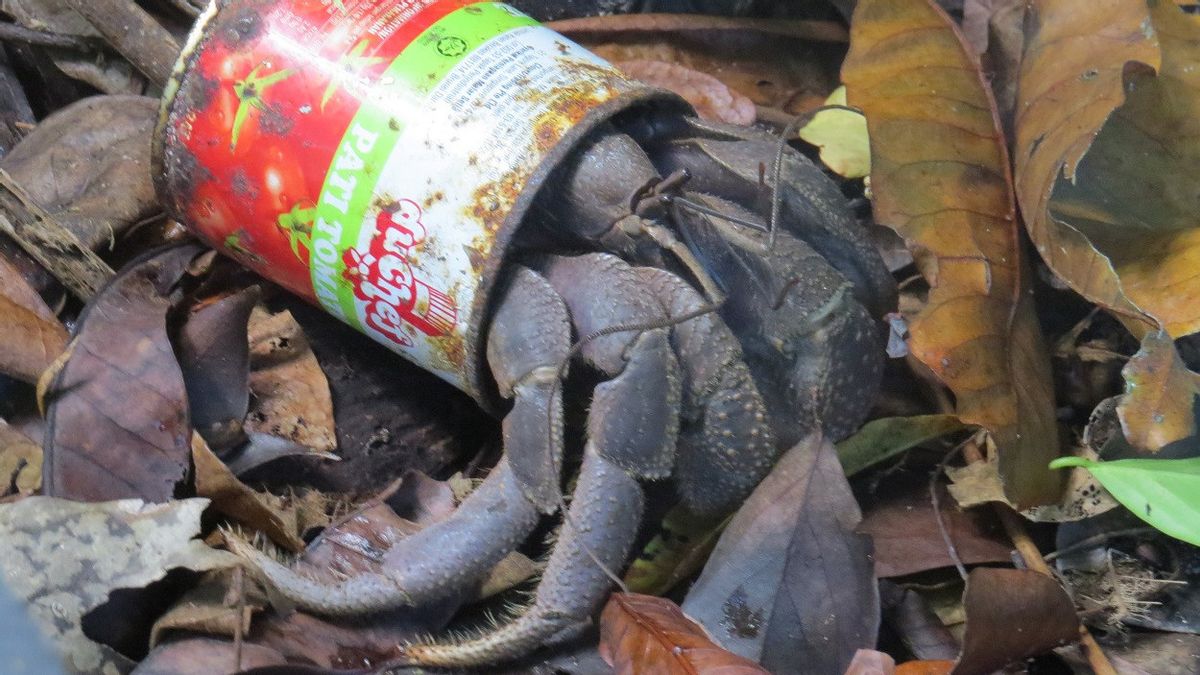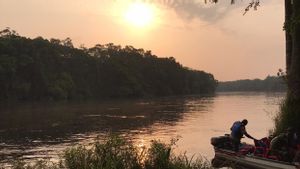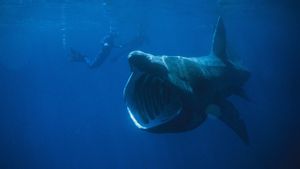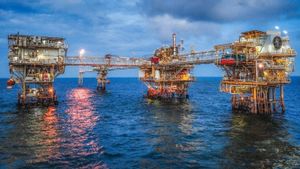JAKARTA - Everyone hates pollution from plastic or cans, right? We don't like seeing photos of turtles caught in abandoned fishing nets, birds entangled in discarded packaging, or the abundance of microplastic fish that end up being consumed.
Well, it turns out that there is one particular species that doesn't feel so negatively about the mounting marine plastic problem, in fact, they are brought to life by this waste.
Yes, this unique fact applies to hermit crabs who have an interest in plastic in the sea. The additive in plastic called Oleamide is known as a sex pheromone and a stimulant for certain marine species, including shrimp.
However, a research team at the University of Hull has discovered that when hermit crabs are exposed to chemicals, their respiratory rates increase, indicating signs of excitement and interest.
"Our study shows that oleamide attracts hermit crabs," said Paula Schirrmacher, the Ph.D. candidate who worked on the paper.
According to her, respiration rates increased significantly in response to low oleamide concentrations. And, according to her, hermit crabs show behavioral attractiveness that is proportional to their response to eating stimulants.
"Oleamide also bears a striking resemblance to oleic acid, a chemical released by arthropods during decomposition. As scavengers, hermit crabs may incorrectly identify oleamide as a food source, creating a trap," she explained.
"This research shows that additive leaching can play an important role in the attraction of marine life to plastics," she said.

Given that the IUCN estimates that at least 7.2 million tonnes of plastic are dumped into our oceans every year, this problem will only get worse.
The scientists working on this study have produced another paper, which examines how marine invertebrates along the Yorkshire Coast, England are affected by climate change and plastic pollution.
The mussels were studied by the team, who looked at how ocean acidification and plastic pollution impact species differently, depending on their sex.
"It is very important to understand how plastic additives work at the molecular level, especially on reproductive success," said Luana Fiorella Mincarelli, another Ph.D. student working in the research cluster.
"We've found that their toxic effects can be amplified in climate change scenarios," she continued.
SEE ALSO:
To note, Mincarelli's research found that male blue mussels were mostly affected by an increase in temperature. While female mussels are more sensitive to the toxic chemical in many types of plastic, known as DEHP.
The paper concludes that rising sea temperatures and plastic pollution can have a significant impact on the breeding cycle of marine invertebrates, negatively impacting reproductive rates.
The English, Chinese, Japanese, Arabic, and French versions are automatically generated by the AI. So there may still be inaccuracies in translating, please always see Indonesian as our main language. (system supported by DigitalSiber.id)


















